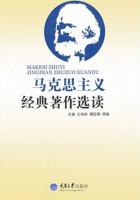A Great Religious Awakening A Great religious awakening under the proclamation of Christ's soon coming is foretold in the prophecy of the first angel's message of Revelation 14.
An angel is seen flying "in the midst of heaven, having the everlasting gospel to preach unto them that dwell on the earth, and to every nation, and kindred, and tongue, and people." "With a loud voice" he proclaims the message: "Fear God, and give glory to Him; for the hour of His judgment is come: and worship Him that made heaven, and earth, and the sea, and the fountains of waters." Verses 6, 7.
The fact that an angel is said to be the herald of this warning is significant. By the purity, the glory, and the power of the heavenly messenger, divine wisdom has been pleased to represent the exalted character of the work to be accomplished by the message and the power and glory that were to attend it. And the angel's flight "in the midst of heaven," the "loud voice" with which the warning is uttered, and its promulgation to all "that dwell on the earth,"--"to every nation, and kindred, and tongue, and people,"--give evidence of the rapidity and world-wide extent of the movement.
The message itself sheds light as to the time when this movement is to take place. It is declared to be a part of the "everlasting gospel;" and it announces the opening of the judgment. The message of salvation has been preached in all ages; but this message is a part of the gospel which could be proclaimed only in the last days, for only then would it be true that the hour of judgment had come. The prophecies present a succession of events leading down to the opening of the judgment. This is especially true of the book of Daniel. But that part of his prophecy which related to the last days, Daniel was bidden to close up and seal "to the time of the end." Not till we reach this time could a message concerning the judgment be proclaimed, based on the fulfillment of these prophecies. But at the time of the end, says the prophet, "many shall run to and fro, and knowledge shall be increased." Daniel 12:4.
The apostle Paul warned the church not to look for the coming of Christ in his day. "That day shall not come," he says, "except there come a falling away first, and that man of sin be revealed." 2 Thessalonians 2:3. Not till after the great apostasy, and the long period of the reign of the "man of sin," can we look for the advent of our Lord. The "man of sin," which is also styled "the mystery of iniquity," "the son of perdition," and "that wicked," represents the papacy, which, as foretold in prophecy, was to maintain its supremacy for 1260 years. This period ended in 1798. The coming of Christ could not take place before that time. Paul covers with his caution the whole of the Christian dispensation down to the year 1798. It is this side of that time that the message of Christ's second coming is to be proclaimed.
No such message has ever been given in past ages. Paul, as we have seen, did not preach it; he pointed his brethren into the then far-distant future for the coming of the Lord. The Reformers did not proclaim it. Martin Luther placed the judgment about three hundred years in the future from his day.
But since 1798 the book of Daniel has been unsealed, knowledge of the prophecies has increased, and many have proclaimed the solemn message of the judgment near.
Like the great Reformation of the sixteenth century, the advent movement appeared in different countries of Christendom at the same time. In both Europe and America men of faith and prayer were led to the study of the prophecies, and, tracing down the inspired record, they saw convincing evidence that the end of all things was at hand. In different lands there were isolated bodies of Christians who, solely by the study of the Scriptures, arrived at the belief that the Saviour's advent was near.
In 1821, three years after Miller had arrived at his exposition of the prophecies pointing to the time of the judgment, Dr. Joseph Wolff, "the missionary to the world," began to proclaim the Lord's soon coming. Wolff was born in Germany, of Hebrew parentage, his father being a Jewish rabbi.
While very young he was convinced of the truth of the Christian religion. Of an active, inquiring mind, he had been an eager listener to the conversations that took place in his father's house as devout Hebrews daily assembled to recount the hopes and anticipations of their people, the glory of the coming Messiah, and the restoration of Israel. One day hearing Jesus of Nazareth mentioned, the boy inquired who He was. "A Jew of the greatest talent," was the answer; "but as He pretended to be the Messiah, the Jewish tribunal sentenced Him to death." "Why," rejoined the questioner, "is Jerusalem destroyed, and why are we in captivity?" "Alas, alas!" answered his father, "because the Jews murdered the prophets." The thought was at once suggested to the child: "Perhaps Jesus was also a prophet, and the Jews killed Him when He was innocent."--Travels and Adventures of the Rev. Joseph Wolff, vol. 1, p. 6. So strong was this feeling that, though forbidden to enter a Christian church, he would often linger outside to listen to the preaching.
When only seven years old he was boasting to an aged Christian neighbor of the future triumph of Israel at the advent of the Messiah, when the old man said kindly: "Dear boy, I will tell you who the real Messiah was: He was Jesus of Nazareth, . . . whom your ancestors have crucified, as they did the prophets of old. Go home and read the fifty-third chapter of Isaiah, and you will be convinced that Jesus Christ is the Son of God."--Ibid., vol. 1, p.
7. Conviction at once fastened upon him. He went home and read the scripture, wondering to see how perfectly it had been fulfilled in Jesus of Nazareth. Were the words of the Christian true? The boy asked of his father an explanation of the prophecy, but was met with a silence so stern that he never again dared to refer to the subject. This, however, only increased his desire to know more of the Christian religion.















